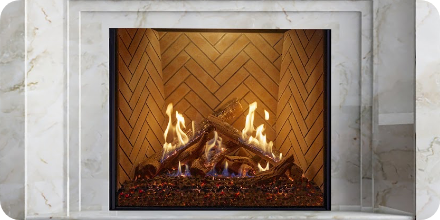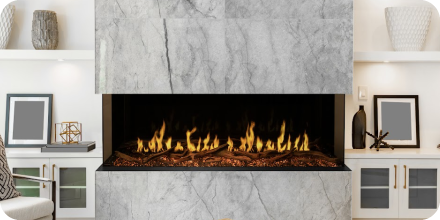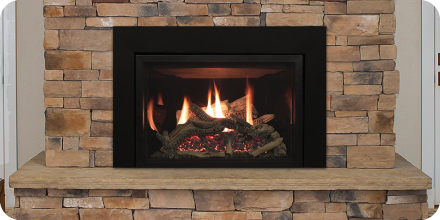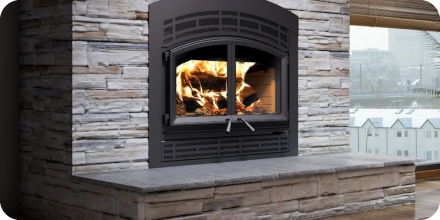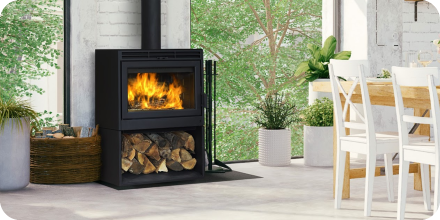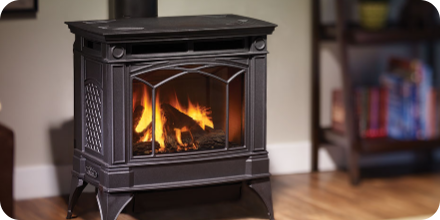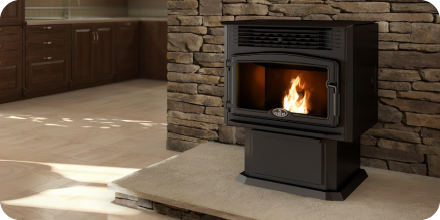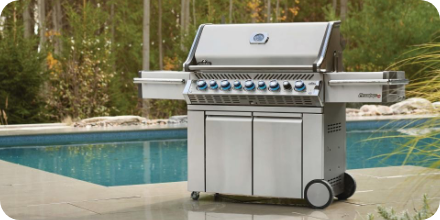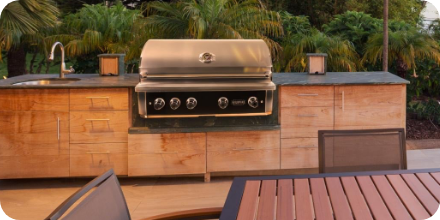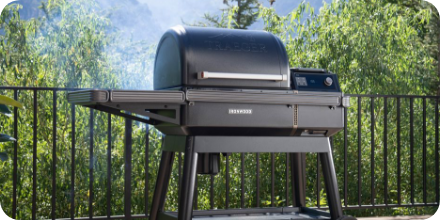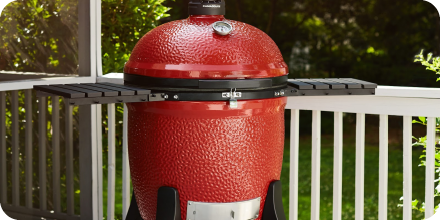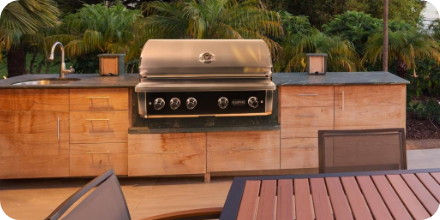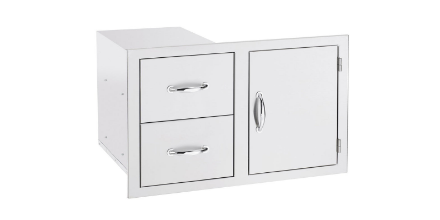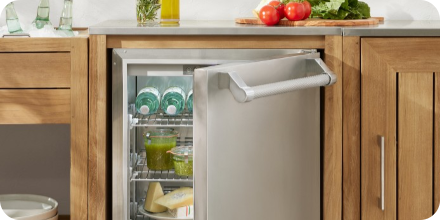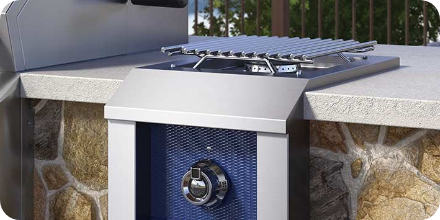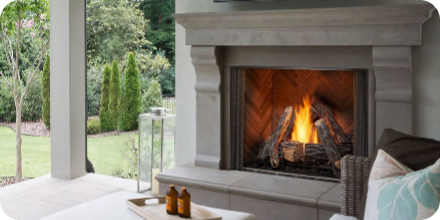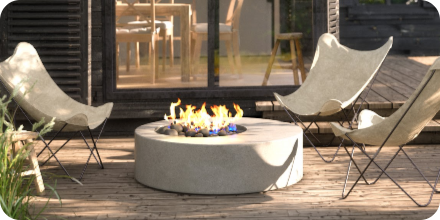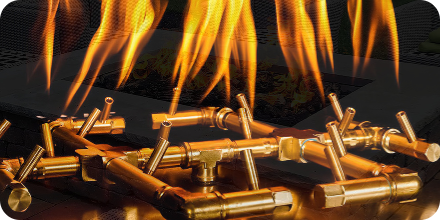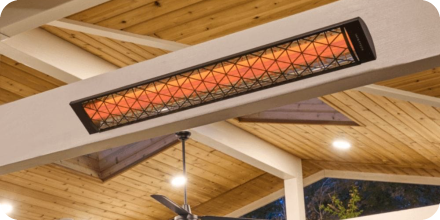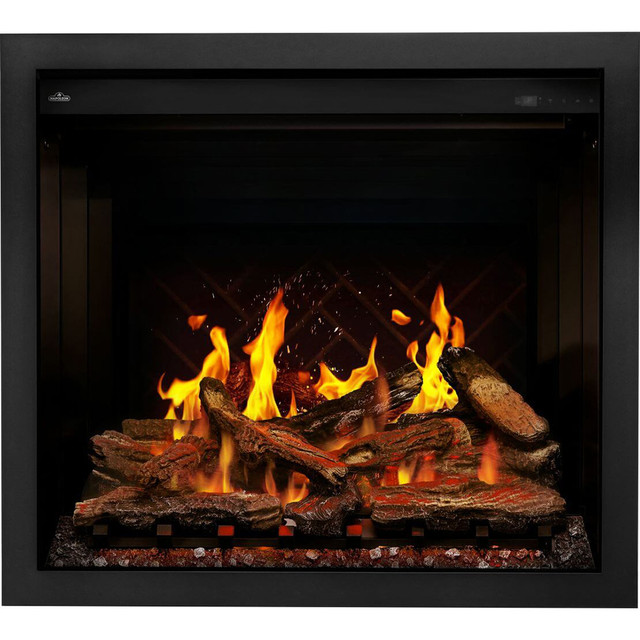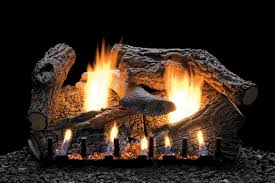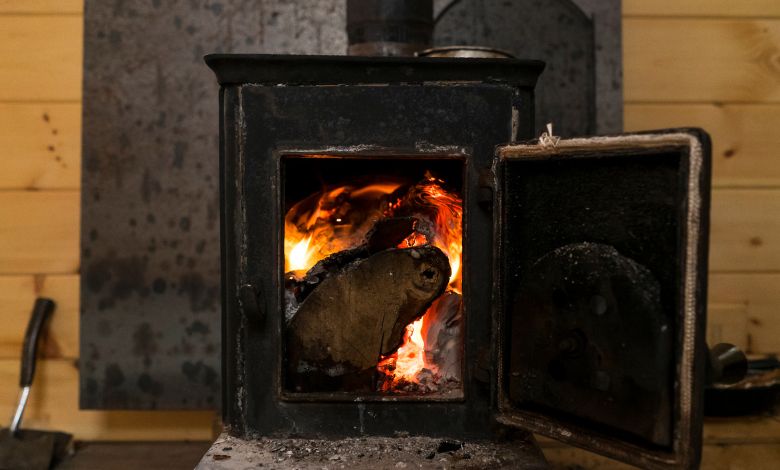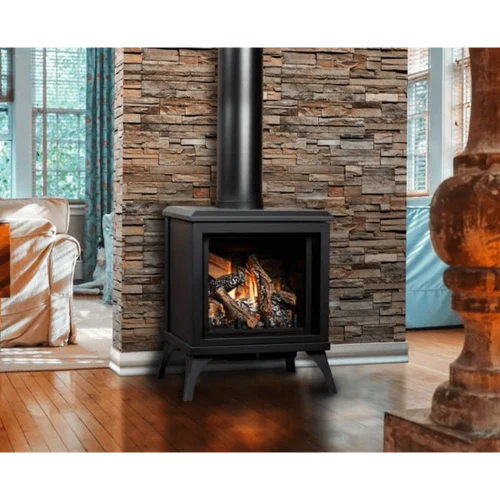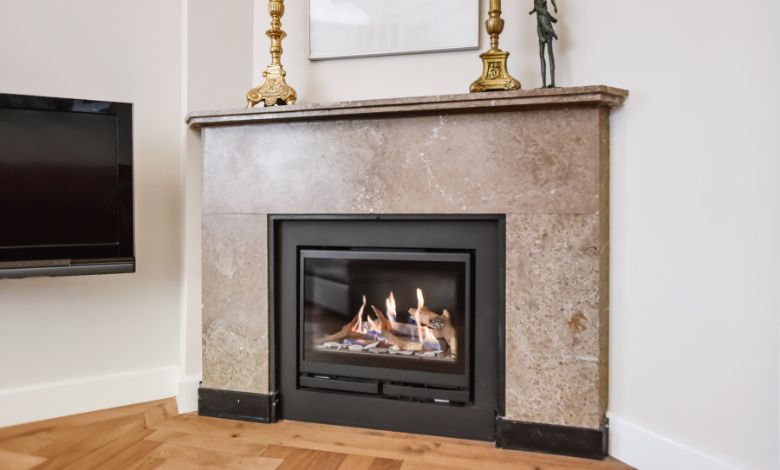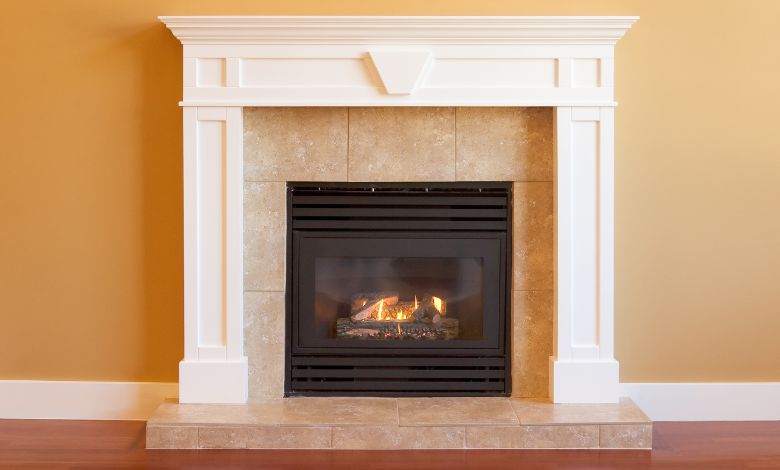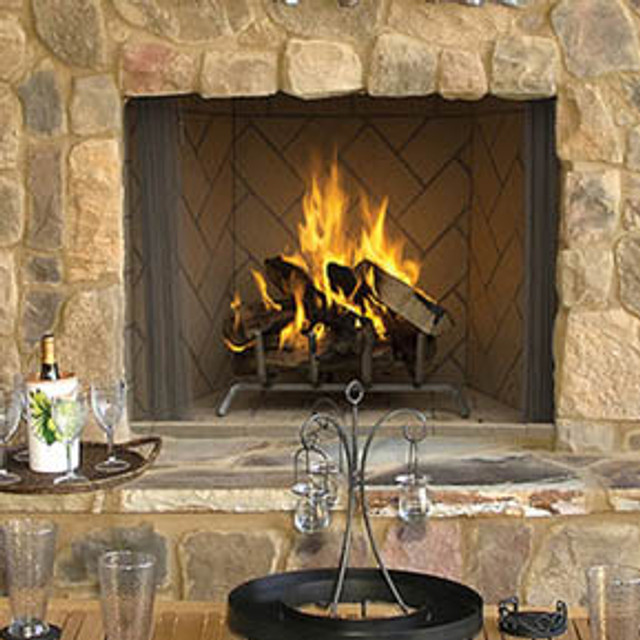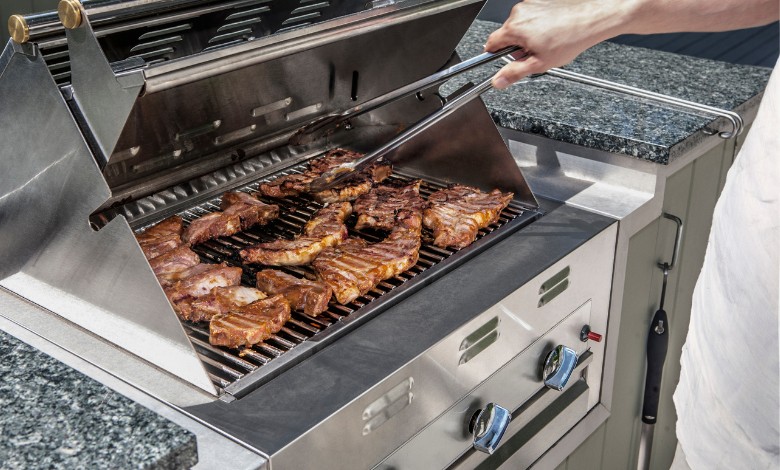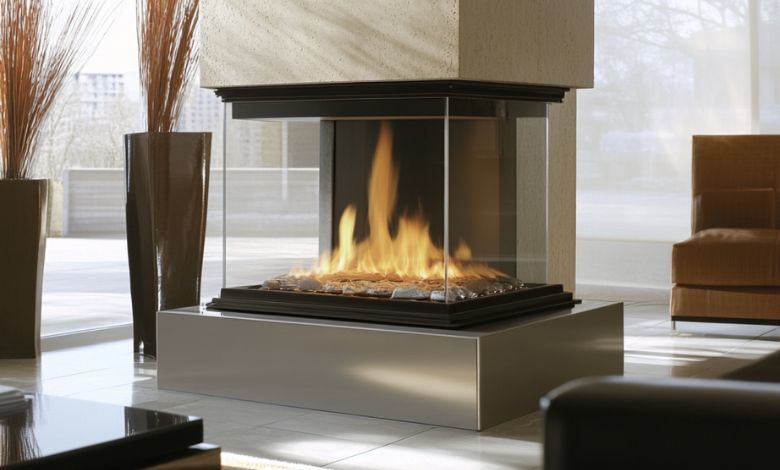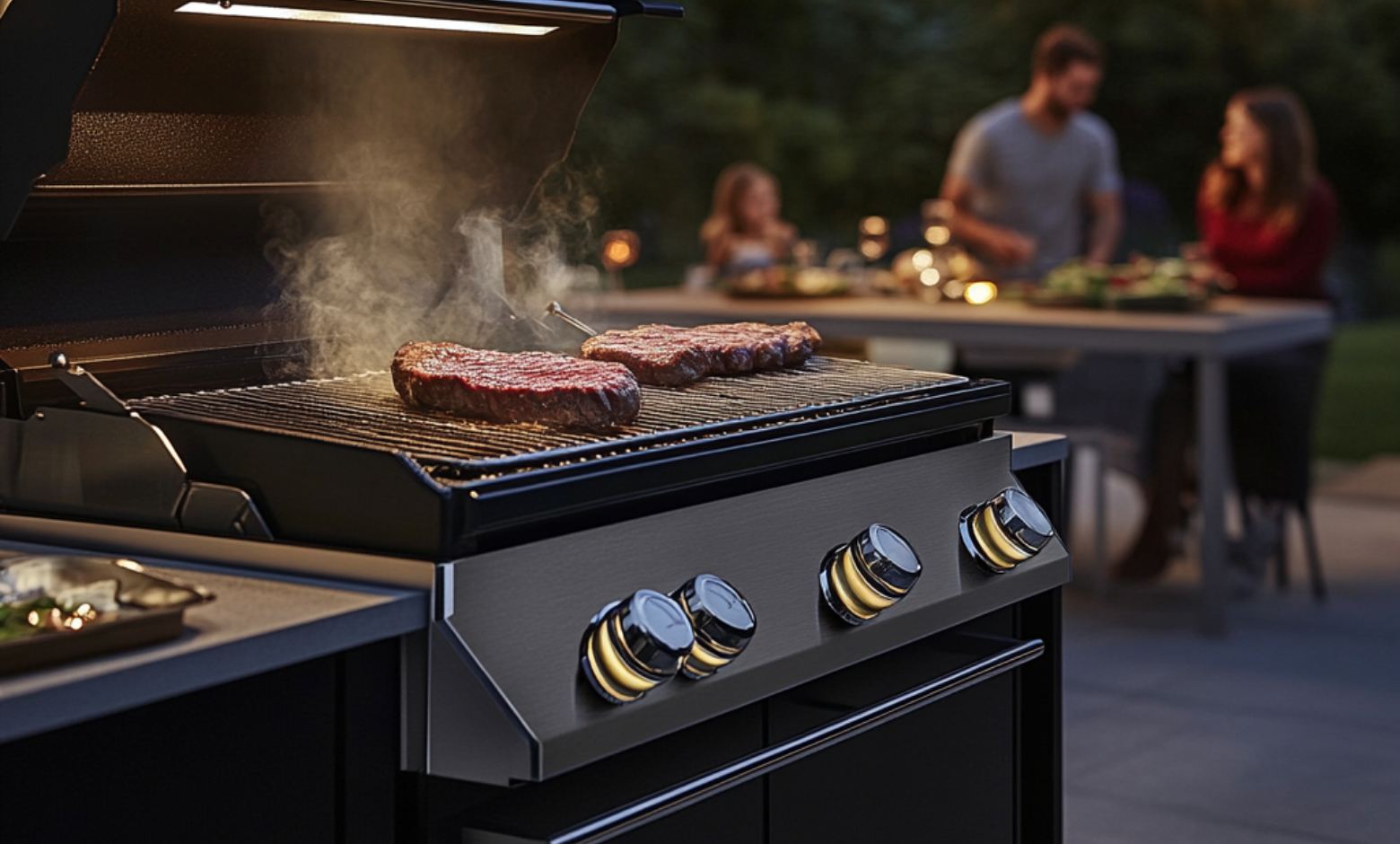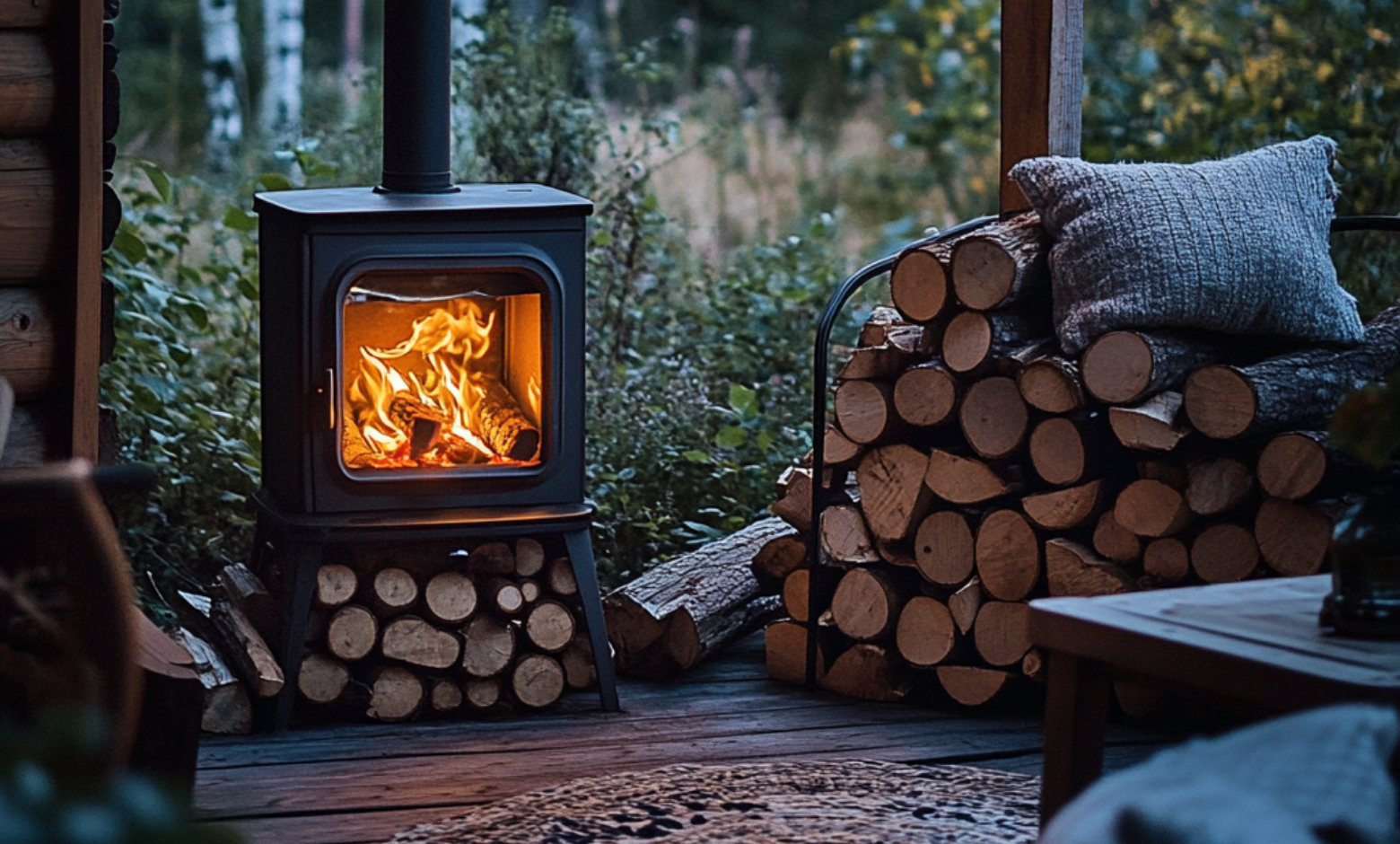Pellet Grill Vs. Gas Grill - The Comprehensive Guide
Jul 19th 2024
Enjoying a barbecue in your backyard may be the best way to organize a party, but the mess and effort make us apprehensive. However, choosing the right grill ensures this is never a problem again. Different options are available that cater to all types of requirements and expectations. The choices are varied for pellet grills, gas grills, electric, and charcoal. It all comes down to the individual requirements, affordability, preference of flavors, and the effort required to maintain the grill.
Let's examine in depth the features and factors of a pellet grill vs. a gas grill, comparing their suitability while selecting the right option.
First, we revisit the basics to understand the fundamental differences between the two types of grills.
What are Gas Grills?
Gas grills are outdoor cooking appliances powered by propane or natural gas. They are designed for efficient and convenient grilling. They feature multiple burners that allow precise temperature control, creating different heat zones for versatile cooking.

The cooking grates, typically made from stainless steel, cast iron, or porcelain-coated steel, provide a sturdy surface and retain heat well for consistent grilling. Gas grills are equipped with an electronic ignition system for easy lighting and control knobs to adjust the flame intensity.
Additional components include flavorizer bars that vaporize drippings to enhance flavor and distribute heat evenly. Some models come with side burners for preparing side dishes and other features like rotisserie attachments and built-in lights for nighttime use. Gas grills offer quick heating, efficient fuel consumption, and easy maintenance, making them popular for casual and severe grilling enthusiasts.
What are Pellet Grills?
Pellet grills are outdoor cooking devices that use wood pellets as their primary fuel source. They combine the gas grills’ convenience with the rich, smoky flavor of traditional wood grilling.

These grills feature a hopper where wood pellets are stored and an auger system that feeds them into a fire pot, igniting them to create heat and smoke. The temperature is controlled electronically, allowing for precise and consistent cooking.
Components include cooking grates, typically made from stainless steel or cast iron, and a digital control panel for adjusting temperature and cooking settings. Many pellet grills have advanced features such as Wi-Fi connectivity for remote monitoring and control, meat probes for accurate internal temperature readings, and a fan system for even heat distribution.
Pellet grills are versatile and capable of grilling, smoking, roasting, and baking, making them a popular choice for barbecue enthusiasts who seek flavor and flexibility in their cooking.
Factors To Consider While Choosing Grills

Choosing a suitable grill can be rather tricky as several factors are involved. These factors are crucial determinants, from its capacity to your present and potential future requirements and the budget. Especially when you are considering a pellet grill vs. gas grill, the following are a few essential factors to compare and decide the right choice:
Fuel efficiency
The first and foremost factor to consider is fuel consumption and type of fuel. In the long run, this can greatly affect how frequently you can use the grill.
Pellet grills use compressed wood pellets as fuel. They burn slowly and evenly, over extended periods. They are generally more fuel-efficient for long, slow cooks, like smoking meats. An auger system feeds the pellets into the fire pot, ensuring minimal waste.
Gas grills function on propane or natural gas, both of which are known for quick heating and convenience. While propane tanks need occasional refilling, natural gas grills can use a gas line, providing a continuous fuel supply. Gas grills are efficient for short, high-heat cooking sessions but can consume more fuel over longer durations than pellet grills.
Ease of use
Whether you are a pro chef or a beginner in outdoor cooking with grills, convenience is attractive to everyone. Today, there are also digitized grills, making cooking significantly effortless. When considering a pellet grill vs. a gas grill, it comes down to what you are comfortable with in terms of usage.
Pellet grills are user-friendly, with digital controls that allow precise temperature settings and automatic pellet feeding. Many models offer Wi-Fi connectivity, enabling remote monitoring and adjustments. However, the initial setup can be more complex due to the electronic components and pellet storage.
Gas grills are typically more straightforward to use right out of the box, with simple ignition systems and control knobs for adjusting the flame. They heat up quickly and require minimal setup, making them ideal for spontaneous grilling sessions. However, controlling temperature variations can be less precise compared to pellet grills.
Temperature and Cooking Variations
The cooking time and effort are majorly dependent on the temperature the grill can maintain and its overall capacity.
A pellet grill excels at maintaining steady, low temperatures, making it perfect for smoking and slow cooking. It can also reach high temperatures suitable for grilling and searing but may take longer to heat up compared to gas grills. The electronic control systems provide precise temperature management.
Gas grills have varied temperatures with rapid heating, which is ideal for high-heat grilling and searing. However, maintaining consistent low temperatures for extended periods can be challenging. Creating multiple heat zones allows for versatile cooking styles, from direct grilling to indirect roasting.
Effect on Flavor
The purpose of a barbecue is to satisfy cravings for good food right at home. Hence, the grill's effect on the flavors is often a crucial determinant for connoisseurs of good food.
Pellet grills infuse food with a rich, smoky flavor derived from the wood pellets. The type of wood used (e.g., hickory, apple, mesquite) can significantly influence the taste, adding a distinct depth to the food. This makes pellet grills highly favored by barbecue enthusiasts seeking authentic smoky flavors.
Gas grills, while convenient, do not naturally impart a smoky flavor to food. They are praised for producing clean and neutral flavors, thus it does not overshadow the natural flavors of the ingredients. However, flavoring bars and wood chip boxes can be added to gas grills to introduce some smokiness.
Power Source
The power source directly affects the maintenance and long-term cost-effectiveness of the grill.
Pellet grills require electricity to operate the digital control system, auger, and fan. This reliance on electricity means they must be used near a power source, which can limit portability. They also need a steady supply of wood pellets, which might not be as readily available as propane or natural gas.
Gas grills can run on either propane tanks or a direct natural gas connection. Propane grills are portable and virtually easy to set up anywhere, while natural gas grills offer the convenience of a constant fuel supply but require a fixed installation. Gas grills do not rely on electricity, enhancing their portability.
Maintenance
Many buyers consider the ease of maintenance and cleaning an important factor when choosing an outdoor barbecue. They want to enjoy the barbecue without the hassle of post-party clean-up and mess.
Maintaining a pellet grill involves regular cleaning of the fire pot, ash removal, and periodic checks of the auger system and digital controls. Wood pellets can produce more ash than gas, requiring more frequent cleaning. However, the digital controls and automated pellet feeding reduce the need for constant supervision.
Gas grills are relatively low-maintenance. Their primary tasks include cleaning the cooking grates, burners, and flavorizer bars. Regular checks for gas leaks and ensuring the ignition system functions properly are crucial. Gas grills produce less residue than pellet grills, making cleanup easier.
Affordability and Features
Last but not least is the budget and features of the grill. The key is to look for an outdoor grill that is versatile with different cooking styles and cost-efficient in the long run,
Pellet grills are often more expensive due to their advanced features, such as digital controls, Wi-Fi connectivity, and automated pellet feeding. However, they offer a wide range of cooking options, from smoking to baking, which can justify the higher initial cost for serious grill enthusiasts.
Gas grills are generally more affordable and have varied prices, as they come in basic models to high-end versions with multiple burners and additional features. They offer excellent value for quick, everyday grilling but may need more versatility and advanced options found in pellet grills.
Which is the better choice?

When considering a pellet grill vs. a gas grill, it is essential to consider personal preference and the grill's purpose. Both have individual pros and cons. However, the choice should be made accordingly, depending on the factors that most affect your needs.
Pros and Cons of Gas Grill
Let us explore the pros of gas grills here:
- Convenience: Gas grills are easy to use, featuring push-button ignition systems, allowing quick and hassle-free startup.
- Fast Heating: They can heat up quickly, usually within minutes, allowing you to start cooking without a long wait.
- Temperature Control: One can adjust the flame intensity with control knobs that enables precise temperature management.
- Clean Burning: Gas grills produce less smoke and fewer residues than charcoal grills.
- Continuous Fuel Supply: There’s no need to worry about running out of fuel mid-cook for natural gas grills connected to a gas line.
However, they have certain drawbacks too:
- Flavor: Gas grills do not naturally impart a smoky flavor to food. While they provide a clean, neutral taste, some grill enthusiasts prefer the distinctive smoky flavor that wood or charcoal grills offer.
- Cost: High-end gas grills are expensive, especially those with multiple burners, side burners, and additional features like rotisseries or built-in lights.
- Maintenance: Regular maintenance, such as cleaning the cooking grates, burners, and flavorizer bars, checking for gas leaks, and ensuring the ignition system functions properly, is crucial.
- Portability: While propane gas grills are portable, natural gas grills are typically fixed installations, affecting their mobility
- Initial Setup: Setting up a gas grill, particularly a natural gas model, can be more complex and time-consuming than a pellet grill.
Pros and Cons of Pellet Grill
The pellet grill is considered advantageous for several reasons such as:
- Flavor: Pellet grills impart a rich, smoky flavor to food, thanks to the wood pellets used as fuel. The type of wood can enhance the taste, offering a variety of flavor profiles.
- Versatility: Pellet grills are highly versatile and capable of grilling, smoking, roasting, and baking.
- Consistent Temperature Control: Pellet grills feature digital controls and automated pellet feeding systems that maintain consistent cooking temperatures.
- Ease of Use: Modern pellet grills have advanced features, like Wi-Fi connectivity, which allows users to monitor and adjust cooking settings remotely.
- Efficiency: Pellet grills burn fuel efficiently, providing steady heat and minimizing waste. The auger system feeds pellets into the fire pot as needed, ensuring optimal fuel use and reducing the need for constant supervision.
Some drawbacks to be aware of:
- Cost: Compared to gas or charcoal grills, pellets are expensive due to the advanced technology of digital controls, which contribute to a higher initial investment.
- Electricity Dependence: Pellet grills require electricity to power the digital controls, drill, and fan systems, which can limit their portability.
- Maintenance: While pellet grills offer convenience in cooking, they require regular maintenance mainly since wood pellets can produce more ash, necessitating more frequent cleaning.
- Pellet Availability: Wood pellets are less widely available than propane or natural gas and may not be stocked at all local stores.
- Heat-Up Time: Pellet grills generally take longer to heat up compared to gas grills.
Wrapping Up
Choosing between a pellet grill and a gas grill depends on personal preferences and cooking needs. Pellet grills offer rich, smoky flavors and versatile cooking options, perfect for those who enjoy slow cooking and smoking. On the other hand, gas grills provide quick heating and ease of use, making them ideal for spontaneous grilling sessions. Both types have their unique advantages and maintenance requirements. For a wide selection of high-quality gas and pellet grills, visit Embers Living and find the perfect grill to elevate your outdoor cooking experience.

